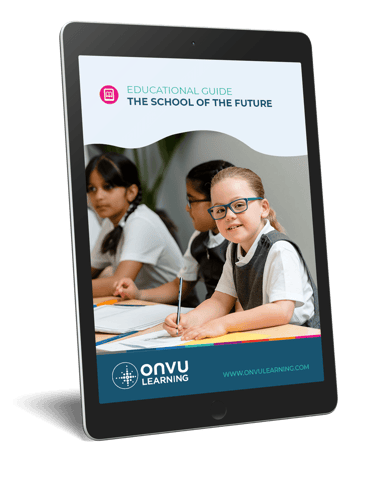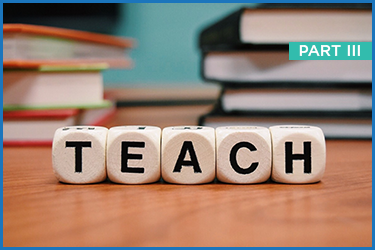- 2 Minute Read


There is a global shortage of teachers coming into the profession, and high numbers leaving after a short time in the classroom. Given that the quality of teachers ultimately underpins a country’s economy through its future workforce and the intellectual property they create, the quality and impact of teacher training is an issue for us all.
At the ResearchED Rugby last year, we asked educationalists what great teachers needed – you can see the videos here. They concluded that as well as subject knowledge, student engagement and classroom management, teachers also needed to be able to work together and be curious and engaged in learning throughout their careers. I’ve also spent time recently talking with current ITT students to see how their training matches up to this.
It seems clear that three key changes have to be made
This seems to be born out in the Government’s Teacher Recruitment and Retention Strategy and Early Careers Framework (ECF).
But how can this be delivered in practice?
In this article, we look at making lesson observation more meaningful. Sign up to our newsletter to make sure you receive the next articles in this series as well as the latest evidence on classroom observation.
The Early Careers Framework states that teachers will have, “dedicated time to focus on their development.” So how will these early career teachers know what they need to develop in their efficacy and spend time working on it with their few months of experience in working in the classroom?
Inexperienced teachers will need to be observed by more experienced teachers so that they can help them to identify areas for improvement.
But how will this observation and coaching time be squeezed in and made meaningful?
In a manic fast-moving school day the experienced teachers and SLT members are already working beyond capacity, hence all the focus on workload reforms.
So how will they be freed up from their teaching and other commitments to nurture early career teachers who have dedicated time to carry out their development?
One solution is to quickly give these teachers the intrinsic self-evaluation skills to help them make the most of the limited time they will have. Rather than waiting for observation and relying on external ‘tick-box’ feedback, they can continuously notice the moments in their classrooms that if changed could lead to improvements in learning outcomes for their students. They can then have more productive discussions with fellow students and other teachers and flag up issues to their mentors.
ONVU Learning is doing this now. We are working with teachers to develop a core process and language for ‘professional noticing’ – a framework that teachers can use for self-reflection; with coaches or colleagues to discuss the ideas that emerge; or, once secure with idea of reflection, with video footage to further explore and validate their ideas.
If you would like to get involved with our work in this area and help trial our solutions please get in touch.
Read Parts I and II of The Future of Initial Teacher Training series:
The School of the Future Guide is aimed at helping school leaders and teachers make informed choices when designing the learning environments of the future using existing and upcoming technologies, as they seek to prepare children for the rest of the 21st century – the result is a more efficient and competitive school.
KEEP IN TOUCH WITH ONVU LEARNING AND RECEIVE THE LATEST NEWS ON EDTECH, LESSON OBSERVATION, AND TEACHER TRAINING AND DEVELOPMENT.